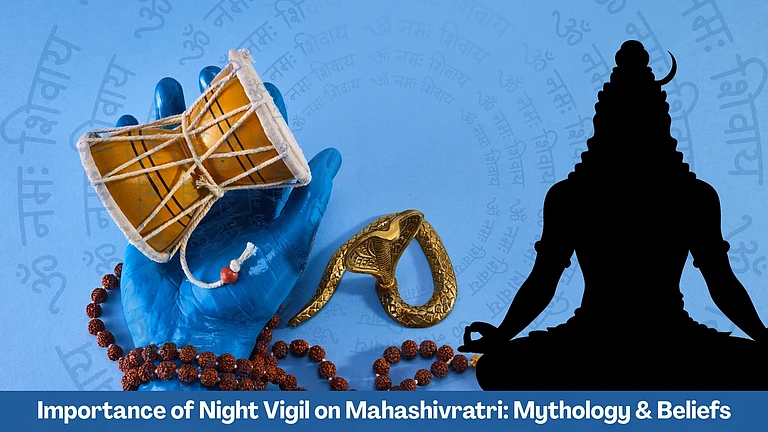The pogrom-like atmosphere gathering apace vis-a-vis its minorities in Pakistan is a far graver threat to society than is commonly realised. Sunnis, the majority community, do not appear to perceive that what is at stake is not an ‘altruistic’ concern for some weak, insignificant others. The larger framework of our lives—capitalism, and its partner in the abomination of our collective existence, nationalism—works to make us think and act as if ethical action towards others is reserved for exceptional moments of ‘altruism’, rather than being the everyday condition of a decent life. This destitute conception of ethics has come to pervade more and more of our lives, including our ‘religion’, which increasingly appears as a domain distinct from its own heart: ethics. Like everything around us, our ethics and religion too are fast becoming content-free.
What is at stake is the character, meaning and quality of life as such, inclusive, above all, of Sunniism and the integrity of its own nature and traditions. It is one of the key teachings of the Abrahamic faiths (and beyond, for example, in the Indic concept of karma) that what is of equal concern in acts of injustice and violence is the impact they have on one’s own soul. This cosmological insight is also at the origin of the philosophical tradition where, in Socrates and Plato, virtue is cultivated in the care of one’s own soul. Both rest on one fundamental: the most basic, enduring pleasure of life—the ground and potential of all other pleasures—is the pleasure of one’s own soul. Simply put, one cannot be a scoundrel to others without becoming a scoundrel to oneself. It cannot be denied that there are pleasures to be experienced in the ego of the scoundrel, but their destitute and transient quality is a common experience. The extreme survivalism of capitalist-nationalist society has worked to suppress this basic truth: it is quite possible to survive, to live a long life (even one endowed with wealth, power, status) and yet never to experience the reality of life. Indeed, without the enlivenment of the soul, even if one survives, one might as well be dead—indeed, our present condition increasingly resembles rotten death, not ripened life.
Most immediate to the question of ‘minorities’, the ricocheting impact of violence on the soul of the perpetrator is evident in the rapidly declining quality of the life of Sunniism itself—in the everyday evacuation of Sunni piety of its ethical content, in the menacing quality of its sanctimoniousness. The disclosure that the Christian child Rimsha Masih’s accuser, Hafiz Mohammed Khalid Chishti, a mosque-imam, had himself planted “blasphemous” material to get the child caught was most revealing. Chishti—a stain he is upon the exalted name of South Asia’s largest Sufi silsila—may be a particularly egregious scoundrel, but the twisted disposition of his piety is by no means devoid of affinity with the emergent character of the society of his co-sectarians.
It is hardly a contentious claim that Sufism, or tasawwuf, has since almost its origin—an origin shared with Shiaism, above all in the person of Imam Ali, to whom almost all Sufi silsilas trace their beginnings—been the heart and life of Sunni Islam. (Without it, it would appear historically to be merely a doctrine of the legitimation of de facto order and power.) Far from being some minor ‘sect’ or ‘mystical cult’—modern categories that correspond little to our historical, religious experience—Sufism has in fact pervaded in innumerable ways the everyday social space of Sunni Islam, existing as the enlivening articulation and inheritance of its aesthetic, ethical, philosophical and spiritual content. Coinciding with the Platonic teaching of theosis, or “becoming like God”, tasawwuf has been the kernel of Sunni Islam, proceeding from the Prophet’s injunction to “cultivate the ethos of the Divinity”.
Thus, the destruction of ‘minorities’ (including, massively, of the Shia) coincides logically with an unprecedented assault on Sufism—and not just in the heretofore inconceivable, physical attacks on the millennial graves of its greatest exemplars, the literally and metaphorically suicidal attacks on the sanctuaries of its saints. It is mirrored, spectacularly, in the daily erosion of the expansive ethos and sublime conceptual world bequeathed to us. What we are witnessing is the disinheritance of the vast treasures historically given in Sunniism, which is fast becoming a monstrous shadow of itself.
We may survive the destruction of our minorities, but without the soul that makes life worth living, the soul that makes its deepest, highest and ownmost pleasures possible. And without this life of life, we might as well be dead. In fact, for the most part, we evidently already are: with our pleasures increasingly those of the living dead, the infernal pleasures of vampires.
(The writer, a PhD in anthropology from Columbia University, is an assistant professor at Habib University, Karachi. He’s a recent convert to Shiaism.)






















